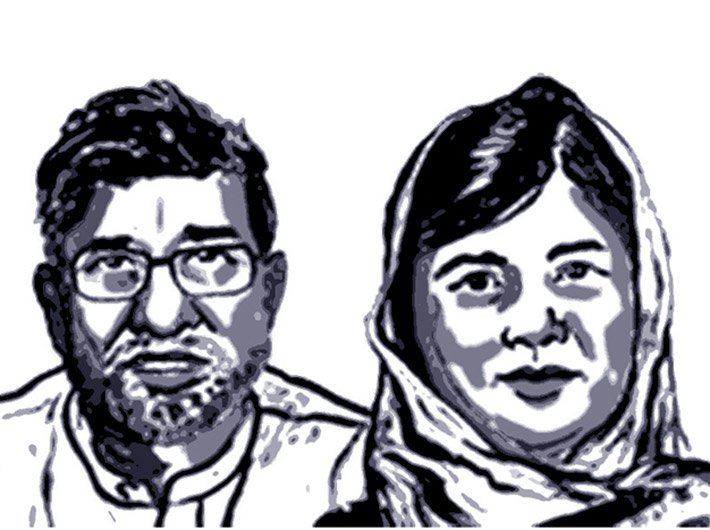The first reaction to the announcement of the Nobel Peace Prize was: who is Kailash Satyarthi? Few knew about him even in New Delhi, where he lives. The other winner, Malala Yousafzai, is well known around the world. She is a well known face, and the international media have profiled her in great detail.
But Satyarthi? No, not even the local media has written about him much.
Thus, in the immediate aftermath of the announcement, we debated several candidates who we thought were better. Ela Bhatt of SEWA has been a long-time favourite, from the time before Muhammad Yunus of Bangladesh won it for somewhat similar work. If, as the Nobel committee representative has admitted, the idea was to make up to an extent for not honouring Gandhi by saluting his legacy, then several Gandhians ranging from Narayan Desai to Gene Sharp would have been more suitable candidates.
What has saving children from bonded labour got to do with Gandhi?
No wonder, many of us questioned the significance of the award. Curiously, a day earlier, the American and British media were similarly flummoxed by the pick for the literature award, since they had not heard of Patrick Modiano. One commentator went on to say that the choice was dictated purely by one factor: not to give the award to the perennially waiting Philip Roth.
On second thoughts, however, Satyarthi’s relative anonymity should not be a disqualifier for any honour. Indeed, it should instead be seen as an exception to the trend of publicity-seeking do-gooders. And, a comment on the laziness of the media in general that ignored his work beyond the day-to-day reports on police raids his organisation Bachpan Bachao Andolan helped conduct on sweatshops employing children.
More importantly, the honour brings to limelight the man as much as his work – ‘saving childhood’. As the Nobel committee put it, the prize to both Satyarthi and Yousafzai was for their “struggle against the suppression of children and young people and for the right of all children to education”.
“Children must go to school and not be financially exploited. In the poor countries of the world, 60% of the present population is under 25 years of age. It is a prerequisite for peaceful global development that the rights of children and young people be respected. In conflict-ridden areas in particular, the violation of children leads to the continuation of violence from generation to generation,” notes the citation.
Satyarthi’s struggle has succeeded in rescuing 83,525 children, even as the Nobel committee estimates there are still 168 million child labourers around the world. In his first reactions, Satyarthi said the prize “will help in giving bigger visibility to the cause of children who are most neglected and most deprived. Everyone must acknowledge and see that child slavery still exists in the world in its ugliest face and form. And this is crime against humanity, this is intolerable, this is unacceptable. And this must go.”
This cause truly needs further visibility. In popular imagination, slavery is nearly extinct around the world, but going by its definition, it continues, and India is its hotbed. According to a 2013 report of Walk Free Foundation that has not found much publicity, there are 29.8 million victims of modern slavery around the world. In absolute numbers, the country with the highest number of ‘modern slaves’ happens to be India, where “between 13,300,000 and 14,700,000 people [are] enslaved” – particularly through debt bondage and bonded labour. (China and Pakistan occupy the next two ranks in the global slavery index.)
A substantial number of these modern slaves in India are, of course, children.
And they do not have a voice: they cannot press for their rights, they cannot carry out demonstrations. Mostly, they are forced to work in dingy factories, wasting away their childhood in making firecrackers and doing zari work, among others. The Nobel Prize salutes Satyarthi’s work for silently helping them find their voice.

